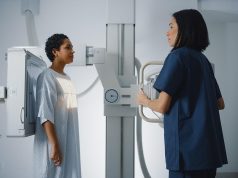Findings in patients after resection of stage II colon cancer
FRIDAY, July 8, 2016 (HealthDay News) — Detection of circulating tumor DNA (ctDNA) after resection of stage II colon cancer may identify patients at increased risk of recurrence, according to a study published July 6 in Science Translational Medicine.
Investigators at Johns Hopkins and the University of Melbourne followed 230 patients with stage II colon cancer treated at 13 hospitals in Australia for four years. The researchers collected more than 1,000 blood samples from the participants before and after surgery and also performed genetic analysis of tissue samples derived from the patients’ tumors. During the study, cancer-related mutations in each blood sample were monitored using DNA tests. Patients also underwent a CT scan of their entire body every six months after surgery for two years, looking for tumor recurrence.
Among the 230 patients, 20 did show telltale cancer-linked DNA fragments in their blood, the study authors reported. Of these 20 patients, six went on to receive additional chemotherapy, and three of those six did experience a cancer recurrence. Of the 14 who did not undergo additional chemotherapy, 11 developed a recurrence of their tumor, detected on a CT scan. The researchers noted that another 14 patients experienced cancer recurrences even though their blood tests did not detect cancer-linked DNA.
“Although this and other DNA-based blood tests are not perfect, this study shows that when we find tumor DNA circulating in the blood of cancer patients, recurrence is very likely,” said study co-author Nickolas Papadopoulos, Ph.D., of the Johns Hopkins University School of Medicine in Baltimore.
Copyright © 2016 HealthDay. All rights reserved.








